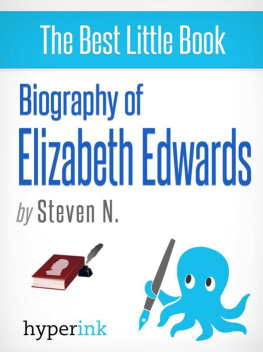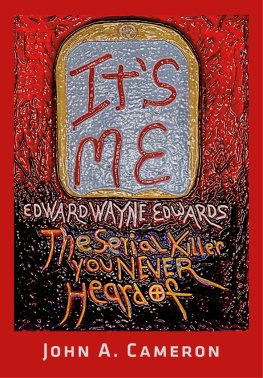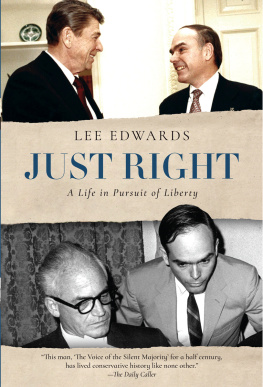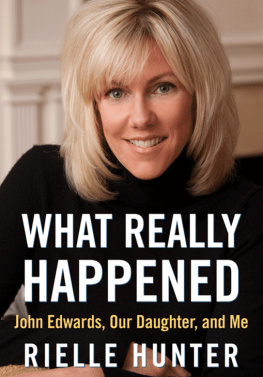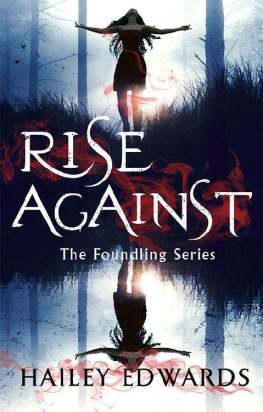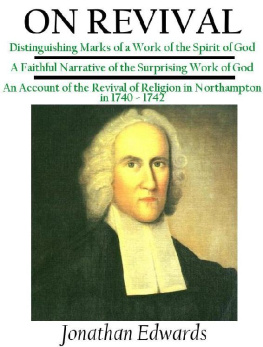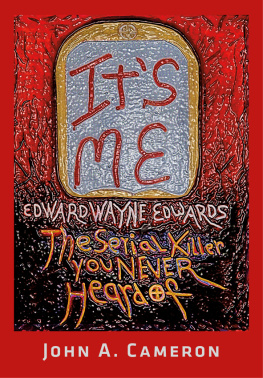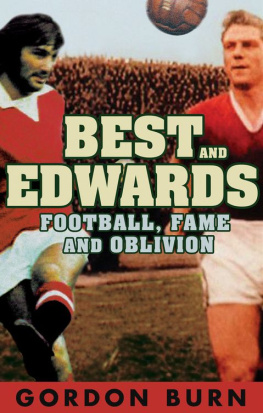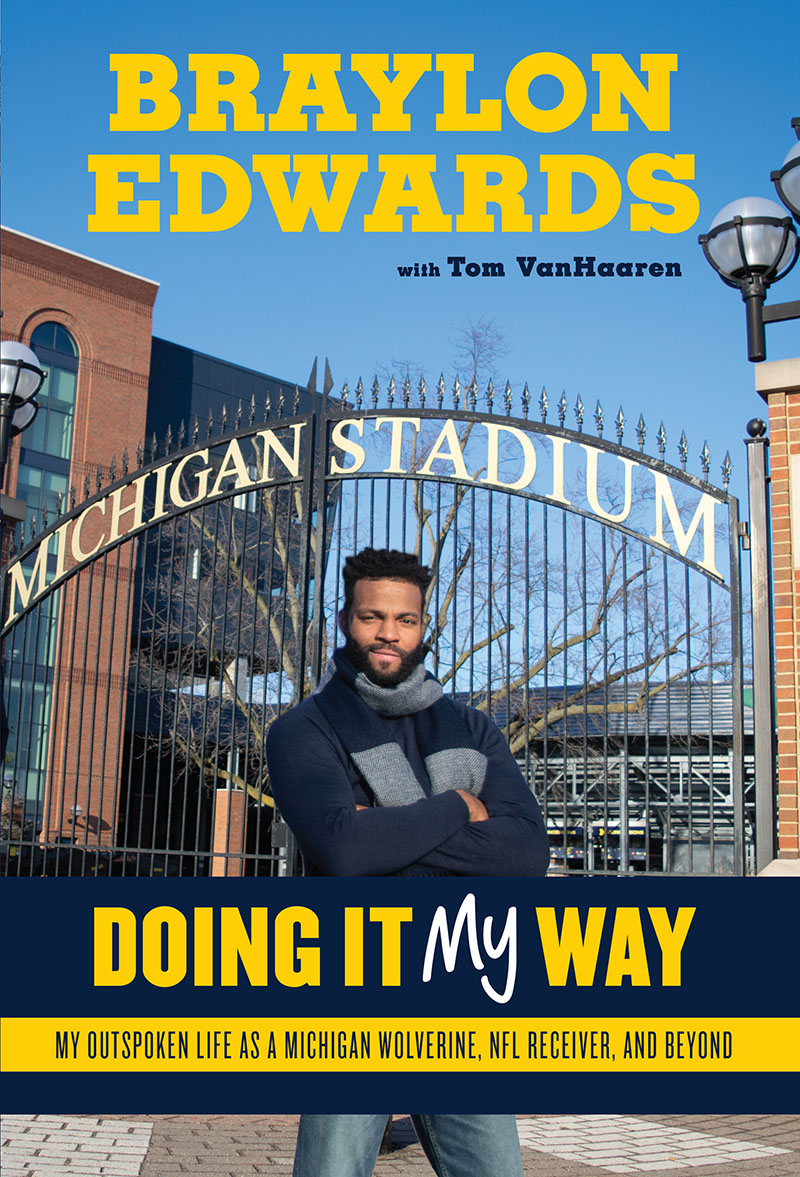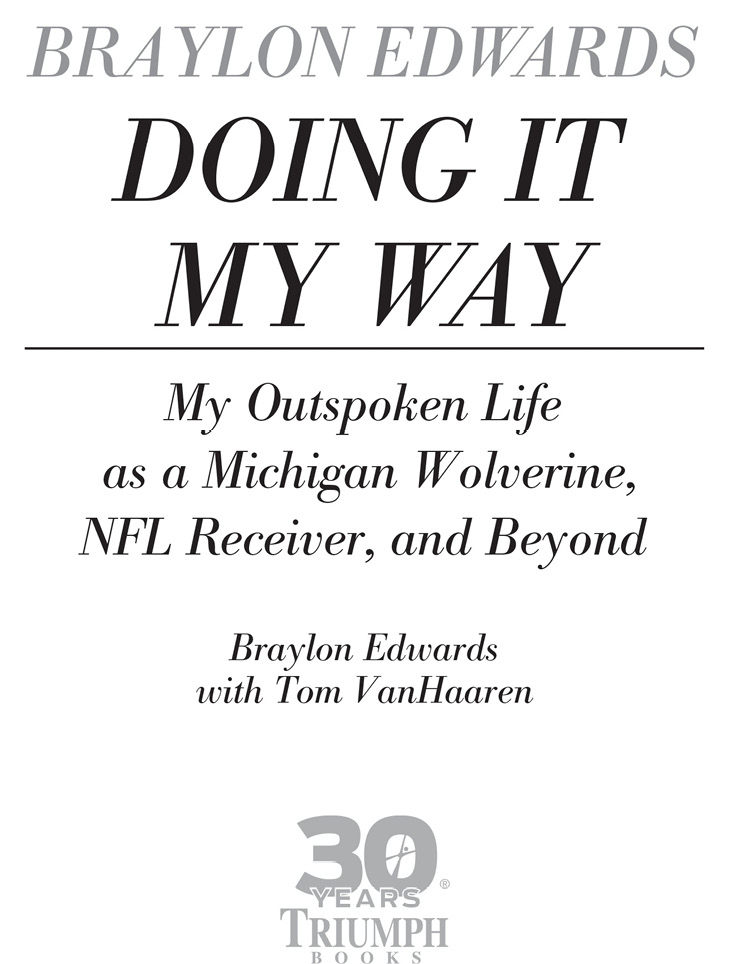
This book is for anyone in the shadows, the people in the background who put in the work and helped but never got any of the credit.
Contents
Introduction
Names, insults, assumptionseverything you can think ofI have heard about myself. Braylon Edwards is out for himself. Braylon is about the money. Hes a bust, hes a bad guy, hes a troublemaker, hes a typical wide receiver who doesnt get it. There are plenty more, but you get the idea. Throughout my 13-year college and professional career, I heard just about everything negative that could be said about me.
Ive had some pretty great things said about me, too, though, and I heard those as well. I heard the fans at Michigan cheering me on, cheering the team on, and 100,000-plus people singing The Victors after wins in The Big House; saw NFL fans wearing my jersey, kids asking for autographs and pictures, and the smiles on the faces of the fans when we came out with a win on Sunday, knowing that those people paid their hard-earned money to come see us play. That always resonated with me and didnt go unnoticed.
That the outcome of our game could impact their week was always pretty powerful, too. If we won, that made their week better; it helped the fans get through to the next Saturday, and we were heroes. But if we lost, it made their week worse, and as quickly as we became heroes, we were now the villains. I always felt that weight on my shoulders.
Whether it was positive or negative, the opinions, the reports about me, and what people thought they knew were all formulated by a story that wasnt fully told by me. It was a version of what really happened, but I was never able to tell my unfiltered story on my own. Throughout the course of my life, through the events that played out in public, people believed they knew who I was. I am thankful for the career I had and the opportunity I had to do what I love, but I have always felt this weight on my chest that I never got to tell the whole story. I never dwelled on what other people said about me nor am I asking for anyones pity. I just want to put it all out there and let people form their opinion of me based on the whole truth.
Ive also never fully explained the reason why I loved football so much and made it my career choice. Football is the greatest game there is; no other sport compares to it because you need the entire team to win. In basketball you can have LeBron James on the floor and make it to the playoffs. In hockey you can have Sidney Crosby and Evgeni Malkin flying up and down the ice to get you to the playoffs. But in football if the receiver isnt catching the passes from the quarterback, it wont work. It wont work unless you have a quarterback who can get him the ball. If the offensive line isnt blocking for the running back, you better hope you have Barry Sanders back there taking the handoff, or else it isnt going to work. That team aspect makes football unique and such a different sport. Being part of that team and that unit is something that always drew me to football. I felt like I was a part of something bigger than me. At Michigan my head coach, Lloyd Carr, used to always tell us that it was bigger than us, that the team meant more than the individual, and that represents football in such a perfect way.
That team aspect was important to me because a big part of my life, believe it or not, was trying to find my place. Whether it was with a group of friends, teammates, or family, I have always struggled to find my place. Football helped give me a place and give me a role within that team structure to fill a gap in my life. I was gifted athletically, and it was fun to winno question about thatbut football, and sports in general, meant way more than just a game to me. Going all the way back to my youth, when I trained with my father as a young child, football is a part of who I am. It was how I gained acceptance and made friends in part of my life and its how I was able to give back to my family and take care of my mom after they did such a great job raising me.
It wasnt easy raising me either. Because I was always looking for acceptance and trying to find where I fit in, a lot of times that meant I was getting into trouble. Thats why it always meant a little more to me that the fans, the pundits, and the reporters get the full story from me. The sport meant more than just a paycheck to me; I wasnt just a robot out there playing a game. Im a human who has dealt with struggles and feels real emotions and Ive had a winding path to get to where I am today.
Cleveland is where I really felt that we were seen as robots that had become stats on a fantasy football lineup. I understand that we were entertainers and performers, and that football, especially in the NFL, is a mode of entertainment for the fans. But it was in Cleveland when I thought that we were looked at as gladiators, marched out to do our job. There was no heartbeat behind the padded armorjust a mindless football player running routes.
Writing this bookand just talking about the events in my lifehas been very therapeutic, allowing me to get things off my chest and talk about what happened and why it happened, giving people a glimpse of who that person is, that sometimes it wasnt always roses in Ann Arbor. Its about how I felt when I was drafted by the Cleveland Browns, what was going through my head when I was traded to the New York Jets, and also some backstory to my childhood that might help explain some of my fights and legal trouble. From my youth, to high school, college, and the pros, everything has collectively built me into this person.
It has built me into Braylon Edwards, the real person. And while there were some bumps and bruises and unexpected turns, I still wouldnt change the outcome or how it happened. I did it my way and, at the time, I did the best I could.
The No. 1 Jersey
The No. 1 Jersey has become a polarizing topic lately. People have heard my comments and disdain about giving the jersey away and players not earning it, and it has become one of the more misunderstood aspects of my life. Theyve taken those quotes and made their own assumptions without knowing why I have such a strong opinion on the matter. Its not just about me; its about who wore it before me and what I had to do to earn that single digit on my chest. I had thought about wearing that number at Michigan since I was a kid, but back then the jersey had to be earned; it wasnt just given away. I asked Lloyd Carr if I could have the No. 1 jersey as an incoming freshman, and he said no. He told me it was a special number and that you had to earn that number, deserve that number, and do right by that number, so I couldnt have it. Thats why I wore No. 80 for the first two seasons because I wasnt allowed to get the No. 1. I chose 80 because Jerry Rice was my favorite player, so I wore his number, which was cool and exciting, but the No. 1 was what I wanted.
I asked Coach Carr before my freshman season and then I asked again after spring before my sophomore season started, and he said that jersey number was still to be determined. When he said to be determined before that second year, I saw that as hope. There was a chance I could get to wear the No. 1 someday, and I took that as a positive. It drove me to work harder than I ever have.
I wanted that number so bad in part because my dad, Stan, played with Anthony Carter, and all my dad ever talked about when I was growing up was Anthony Carter. Anthony Carter is the best player in Michigan history. Anthony Carter can run this route, can catch this pass. Anthony Carter, Anthony Carter, Anthony Carter. If youre a Michigan fan of a certain age or follow Michigan tradition, there is nobody better than Anthony Carter. He was a three-time All-American, finished in the top 10 in the Heisman Trophy voting three times, and played at a time when the passing game wasnt as prolific as it is today. I grew to really appreciate Carter and what he did, and ever since I was a little kid, that number has represented greatness.


